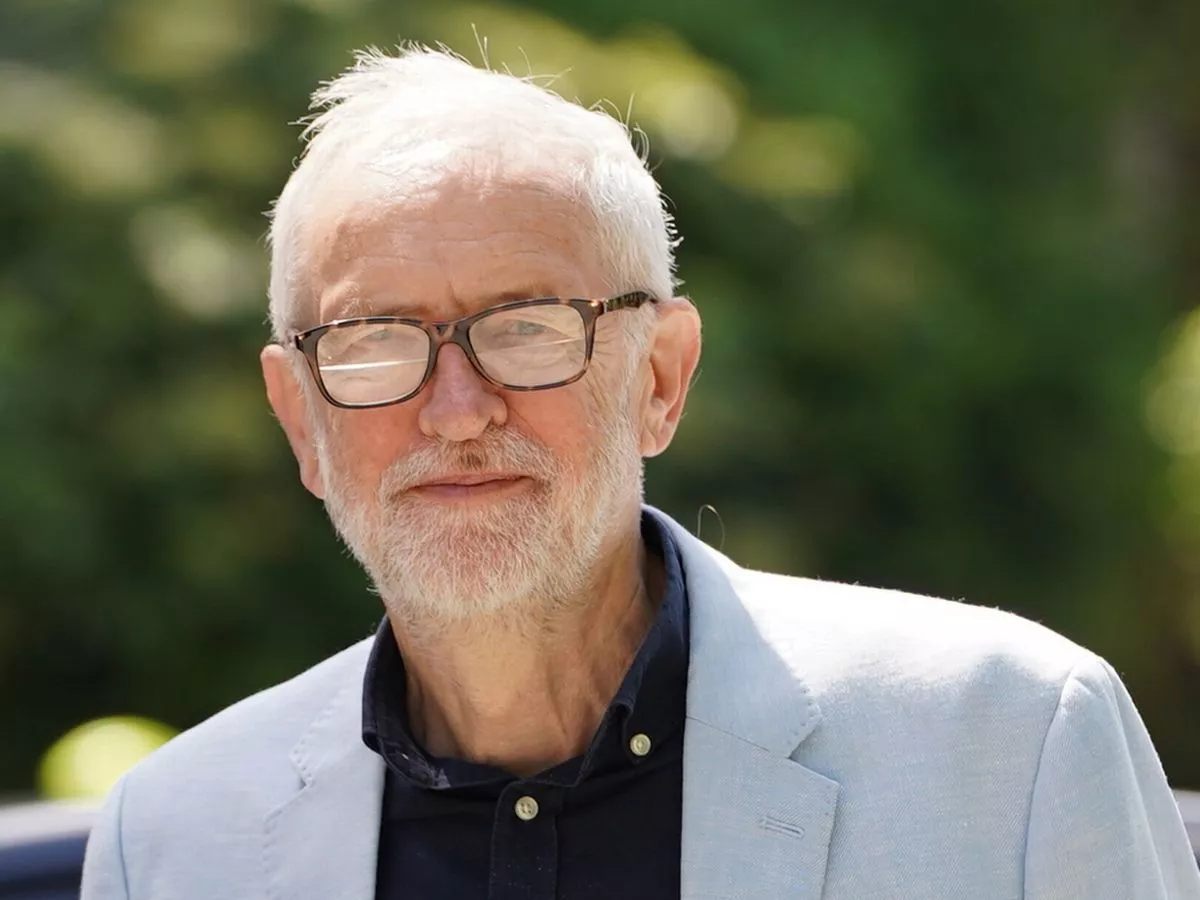Copyright hellomagazine

Alzheimer's disease continues to be one of the great challenges of modern neurology, and few professionals approach it with as much passion and rigour as award-winning neurologist Dr. Pablo Martínez-Lage Álvarez. Here the medical specialist shares his depth of knowledge about advances in Alzheimer’s disease diagnosis and treatment, the importance of early detection and the future of the fight against the disease that affects millions. "Every organ holds its mysteries, but the brain stands out as one of the great unknowns," he says. "It makes one wonder if the brain will ever truly be able to understand itself. "Technological progress over the last two decades, particularly in neuroimaging, neurophysiology and cognitive neurology, is gradually revealing the secrets of the human brain, and the function of each of its parts. But there is still a lot we don't know." Research into Alzheimer's disease has advanced greatly in recent years. What do you consider to be the most significant advancement? "I believe the most significant advance is in diagnosis, because it has the potential to reach the widest number of people. While important progress has been made in understanding the disease mechanisms - and recently larger steps have been taken in treatment - what has really reached clinical practise is the possibility of making an accurate, reliable and most importantly timely diagnosis. "This progress is in the field of biomarkers - biological parameters that allow us to determine if the presence of Alzheimer's biology is driving a patient's memory problems… Before, there was an urban neuro-legend that Alzheimer's could only be diagnosed at autopsy." Alzheimer's is still an incurable disease. What do we really achieve by detecting it in time? “I am radically against that notion. Not in the sense that it cannot be cured - that is still true - but in the sense that it cannot be treated. [Treatment] is where early diagnosis gains its meaning. “When we talk about early detection, it has a couple of implications. For example, making the diagnosis as early as a person's first consultation. In the past, diagnosis could take up to three or four years, if not more. We no longer have to say, 'You have a slight memory deficit, come back in a year', which was a common approach. “It also means diagnosing the disease when a person has a cognitive impairment but has not yet developed dementia. Dementia is synonymous with dependence. A timely diagnosis is when the person is still living a normal or near-normal life and, most importantly, still has the capacity to make decisions." “If we can achieve this, there are two benefits: Drugs and strategies, like controlling risk factors or promoting healthy lifestyle habits, are more effective in these initial phases. Early diagnosis allows the person to plan their future and put their affairs in order, including creating advanced directives. They can decide who they want to care for them, how they want to be cared for and financially plan for future needs. This will all happen at a time when they are still capable of making decisions. “In essence, by acting at that crucial moment, what we are trying to achieve is prolonging the phase where the person may have Alzheimer's, but they're still autonomous or almost autonomous. The goal is to maximise the time that people with Alzheimer's can continue to, for example, care for their grandchildren, perhaps continue driving for a while, or go for walks alone - with precautions. These are all very important things. The overarching purpose of early detection is to promote autonomy and prevent dependence.” But confirming an Alzheimer's diagnosis to someone who otherwise seems fine, is relatively healthy and has their independence, could be devastating. “We conducted a survey in Spain of more than 600 caregivers of people with Alzheimer's and when we asked them what they felt when the diagnosis was confirmed, one in three felt relief. They knew something was wrong at home and finally, that problem had a name and could be dealt with… People who come to the doctor with memory problems do so because they want to know, ‘What's wrong with me?’. We have to be able to give them an answer." Is it usually a relative or someone who lives with the person who encourages the patient to go to the doctor? "That's happening less and less. That used to be the case because people typically waited until symptoms were very obvious. But thanks to public awareness, people are now more informed about the initial symptoms of memory decline and understand the value of an early diagnosis. A growing number of individuals are seeking medical consultation on their own. "While it is true that there is a certain, I won’t say ‘denial’, but tolerance or tendency to dismiss initial memory lapses - people often attribute them to age, stress or lifestyle - the people who are genuinely experiencing these changes are aware of them. This directly contradicts the long-standing, mistaken belief that people with Alzheimer's don't realise they have the condition. While awareness is lost in advanced stages, patients in the initial phases absolutely notice these lapses. "Confirming the diagnosis provides an answer to a question the person has a right to ask. I'll also venture to say that we professionals have a duty to answer, to the best of our ability. Although the disease is difficult, my experience is that people generally accept and tolerate the diagnosis well, provided the communication is respectful, empathetic and and paced appropriately." With a disease like this, you must often find yourself obligated to give bad news. “Think about another major illness: cancer. About 30 years ago, no one wanted to say out loud that they had cancer. Today, because we openly talk about it, cancer is largely well-managed and effectively fought. Why shouldn't we strive for the same outcome with Alzheimer's? We have to try to erase the stigma.” In the end, is fear part of the problem? "That’s right. You can be afraid of death or suffering, but sometimes uncertainty and the fear of the unknown can cause more distress. It’s essential for the patient to know their diagnosis, have it thoroughly explained and be given a set of actionable steps to make the problem as manageable as possible. Studies show that properly conveying a diagnosis significantly reduces levels of depression and anxiety in both patients and their family members, and can even improve overall quality of life." What treatment would you recommend to a person who has just been diagnosed with Alzheimer's in the early stages? "There are four things that can be done: Use the pharmaceutical treatments that have been standard for the disease for the past 20 years, having proven their effectiveness in clinical trials. Incorporate specific, proven nutritional supplements. There is one product, which was developed almost like a drug, undergoing four rigorous, placebo-controlled clinical trials, showing benefits over placebo in three of them. Cognitive stimulation. It's a form of therapy which has been demonstrated to have a level of efficacy similar to that of prescribed medications. Control the factors that accelerate disease progression. This primarily involves managing cardiovascular risks such as high blood pressure, cholesterol, obesity, smoking and diabetes. What is good for the heart is good for the brain. That’s why we promote healthy lifestyle habits: following a Mediterranean diet, engaging in regular physical and cognitive activity, socialising and managing emotional health, depression, stress, and unwanted loneliness. These four steps should guide the treatment strategy; the disease is incurable but we can try to delay its progression and significantly support the independence of the person affected." You mentioned nutritional supplements. Can you be more specific? "There are a lot of nutritional supplements at our disposal these days. There’s one called Souvenaid, which is a combination of Omega-3 fatty acids and a blend of nutrients that neurons use to build membranes and establish connections. It's a well-developed supplement containing elements like phospholipids, selenium and B-complex vitamins. The key criterion for my recommendations is that the supplement must have clinical studies that validate its efficacy." Are you hopeful about future treatments for Alzheimer's disease? "I can't give you any specific timelines, but there are plenty of reasons to have hope. The ability to achieve a timely, early diagnosis represents a significant step forward. Developing and utilising drugs that directly target the underlying mechanisms of the disease is another important step. So is research in presymptomatic or preclinical phases, which may eventually lead to detecting the disease so early that we can significantly delay, or even prevent, the onset of full symptoms. Research requires substantial time, effort and funding, but the momentum is strong. I always emphasise, though, that having hope for a cure must not distract us from the progress we have already made." Are there environmental or social factors that are causing an increase in cases? "The increase in Alzheimer's cases is primarily due to improved diagnostic methods, there’s no actual rise in prevalence. In fact, epidemiological studies comparing the last century to this one suggest a slight decrease in prevalence, which is a highly significant finding. "One likely explanation for this decrease is that participants in recent epidemiological studies have benefited from access to education, better nutrition and better management of cardio-cerebrovascular risk factors, which was not the case in the mid-to-early last century. "Research has identified up to 14 modifiable risk factors for Alzheimer's that are supported by substantial data. For example, while a low educational level might seem fixed, it is actually modifiable; even if a person has limited formal schooling, they can cognitively enrich their brain by leading a mentally active life: reading, attending lectures, and engaging with culture. "Other well-established modifiable factors include managing issues related to blood pressure, cholesterol, obesity, diabetes and depression. Newer research also highlights environmental pollution and physical conditions like hearing loss as potential risk factors for Alzheimer's and dementia. A lonely life, sedentary lifestyle, lack of physical activity and an unhealthy diet are also factors. "The key takeaway is that epidemiologists estimate that one in three or four cases of Alzheimer's could potentially be prevented through the effective control of these factors." In a previous interview, you commented that Alzheimer's was 'quite a democratic' disease, affecting people from all walks of life. "Alzheimer's doesn't discriminate… Although it is true that there are certain factors that increase the probability of developing it, it affects all social classes, all races and all sexes or genders." How does working so closely with patients diagnosed with such a difficult disease affect you? "Being able to confirm a diagnosis and provide a clear answer already offers patients a form of relief. Giving guidance and information, pharmacological intervention, non-pharmacological therapies, resolving doubts... The work we do, even when facing a devastating disease that we can't cure, is profoundly rewarding, even when someone is in the most advanced stages... "When [patients and families] see that they have been truly listened to, that you have thought critically about the situation and have genuinely tried various solutions, it always helps, even in the absence of a cure. That, honestly, is immensely gratifying. "For example, I worked in a care home for almost three years. That daily contact with residents and their families required me to explain complex issues using the plainest language possible and taught me how to communicate. That kind of experience significantly enhances the human side of medical practise." About the expert: Dr. Pablo Martínez-Lage Álvarez neurologist leads cutting-edge research at the CITA-Alzheimer Foundation in San Sebastián. He was awarded the SEN Alzheimer Prize by the Spanish Society of Neurology in 2024.



